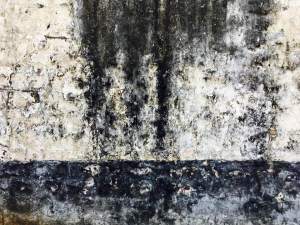 I was intrigued to read a book by a Mauritian author during Women in Translation month. Eve out of her Ruins hadn’t been on my initial list, but it was recommended to me and I decided to get a copy especially as I’ve been seeing many images of the island of Mauritius recently.
I was intrigued to read a book by a Mauritian author during Women in Translation month. Eve out of her Ruins hadn’t been on my initial list, but it was recommended to me and I decided to get a copy especially as I’ve been seeing many images of the island of Mauritius recently.
My Uncle is spending some months there at present, designing a noir thriller film called Serenity, starring Anne Hathaway and Matthew McConaughey. A fishing boat captain’s past is about to crash up against his life on a tropical island.
Thank you Andrew McAlpine for the photos shared below, which so well depict the contrasts of Mauritius.
Ananda Devi writes from her roots. Deep within the Indian Ocean, Mauritius was colonised by Dutch, French and English explorers, traces of this colonial past remain evident both in the landscape and among the languages spoken by its multifarious population, descendants of settlers, slaves, indentured servants, and finally immigrants.
Though the blurb does mention the novel is enchanting and harrowing in equal measures, it is the story that is harrowing and the lyrical prose that is enchanting.
…she has trained her novelistic gaze on disenfranchised populations and the ways in which femininity is shaped and established. Her gorgeously hewn sentences rarely shy away from depicting violence or suffering; her novels, rather, embrace the entirety of human experience, from abject suffering to unalloyed joy. Jeffrey Zuckerman, Translator
The novel is narrated through four teenage voices, two young men Saad and Clélio, who like many young people on the island are bored and belong to a gang, not through any desire to cause harm, but almost to create some kind of a sense of community, their destructive tendencies more a result of a restless energy that has no other channel.
Saadiq, though everyone calls him Saad is in love with Eve and wants nothing more than to be able to protect her, and though she is used by everyone, there is something between these two, something that both draws them together and keeps them apart. He loves words, he expresses himself through the poetry of others, inscribing lines upon a wall, when he finds the phrase that resonates.
“Our cité is our kingdom. Our city in the city, our town in the town. Port Louis has changed shape; it has grown long teeth and buildings taller than its mountains. But our neighbourhood hasn’t changed. It’s the last bastion. Here, we let our identities happen: we are those who do not belong. We call ourselves bann Troumaron – the Troumaronis – as if we were yet another kind of people on this island filled with so many kinds already. Maybe we actually are.
Our lair, our playground, our battleground, our cemetery. Everything is here. We don’t need anything else. One day we’ll be invincible and the world will tremble. That’s our ambition.”
The two girls Eve and Savita are friends, the light in each others eyes and lives, something observed by the boys that generates jealousy and inspires something terrible.
There is a second person narrative throughout, written in italics, employing the you voice, an omniscient presence that sees everything, enters the minds of characters, in particular Eve and all who encounter her, it understands everything and voices thoughts that can not be expressed.
Out of distress. Out of misery. Confirming angrily, belligerently, hopelessly, what they’re all thinking, over there, outside.
Being. Becoming. Not disappearing in your eyes. Escaping the straitjacket of passivity, of idleness, of failure, of ashen gazes, of leaden days, of sharpened hours, of shadowy lives,of faraway deaths, of gravelly failures, of lingering, of nakedness, of ugliness, of mockery, of laughter, of tears, of moments, of eternity, of shortness, of heaviness, of night, of day, of afternoons, of dawns, of faded Madonnas, of vanished temptresses.
None of that is you.
It is a tragic account, full of foreboding, it seems as if there is no escape, the one that did, a brother, promised to return, a hollow promise.
She forces open a door in darkness’s wall. This opening indeed reveals the beauty of the island, of this gift from the gods that is Mauritius, this gift that humans do not deserve but only a few innocents may ever see. J.M G. Le Clézio










 Such Small Hands is an incredible and unique novella, quite unlike anything I have read, it’s written almost from another dimension. The author somehow enters into a childlike perspective and witnesses the aftermath of a car accident in which the child Marina’s parents don’t survive.
Such Small Hands is an incredible and unique novella, quite unlike anything I have read, it’s written almost from another dimension. The author somehow enters into a childlike perspective and witnesses the aftermath of a car accident in which the child Marina’s parents don’t survive. Inspired by a disturbing event, this enters the realm of post trauma in an innocent and bizarre way, taking the reader back to a kind of twilight zone of an insecure childhood, where the nightmare becomes real and the line between reality and dreams is blurred.
Inspired by a disturbing event, this enters the realm of post trauma in an innocent and bizarre way, taking the reader back to a kind of twilight zone of an insecure childhood, where the nightmare becomes real and the line between reality and dreams is blurred. Nothing Holds Back the Night is the book Delphine de Vigan avoided writing until she could no longer resist its call. It is a book about her mother Lucile, who she introduces to us on the first page as she enters her apartment and discovers her sleeping, the long, cold, hard sleep of death. Her mother was 61-years-old.
Nothing Holds Back the Night is the book Delphine de Vigan avoided writing until she could no longer resist its call. It is a book about her mother Lucile, who she introduces to us on the first page as she enters her apartment and discovers her sleeping, the long, cold, hard sleep of death. Her mother was 61-years-old. I read this book in a day, it’s one of those narratives that once you start you want to continue reading, it’s described as autofiction, a kind of autobiography and fiction, though there is little doubt it is the story of the author’s mother, as she constructs thoughts and dialogue inspired by the information provided by family members, acknowledging that for many of the events, some often have a different memory which she even shares.
I read this book in a day, it’s one of those narratives that once you start you want to continue reading, it’s described as autofiction, a kind of autobiography and fiction, though there is little doubt it is the story of the author’s mother, as she constructs thoughts and dialogue inspired by the information provided by family members, acknowledging that for many of the events, some often have a different memory which she even shares. After her abrupt departure from Paris back to her father’s home in Montigny, to the village home where she grew up, I was curious to know what was to come of our troubled Claudine and her errant husband.
After her abrupt departure from Paris back to her father’s home in Montigny, to the village home where she grew up, I was curious to know what was to come of our troubled Claudine and her errant husband. However he is more than happy that she spend time with his sister Marthe, about whom he writes:
However he is more than happy that she spend time with his sister Marthe, about whom he writes:
 I loved Claudine at School for her exuberant overconfidence and love of nature, Claudine in Paris for her naivety and prudence, realising there was much about life she had still to learn and Claudine Married for the melancholy of marriage, of the realisation of her false ideals and indulgence of strong emotional impulses.
I loved Claudine at School for her exuberant overconfidence and love of nature, Claudine in Paris for her naivety and prudence, realising there was much about life she had still to learn and Claudine Married for the melancholy of marriage, of the realisation of her false ideals and indulgence of strong emotional impulses. The impulsive Claudine, thinking a marriage of her own making and choice (not one chosen by her father or suggested by a man who had feelings for her that weren’t reciprocated) embarks on her marital journey which begins with fifteen months of a vagabond life, travelling to the annual opera Festival de Bayreuth, in Germany, to Switzerland and the south of France.
The impulsive Claudine, thinking a marriage of her own making and choice (not one chosen by her father or suggested by a man who had feelings for her that weren’t reciprocated) embarks on her marital journey which begins with fifteen months of a vagabond life, travelling to the annual opera Festival de Bayreuth, in Germany, to Switzerland and the south of France. Their relationship plays itself out, up to the denouement, when Claudine seeking refuge decides to return to Montigny, to the safety of her childhood home, the woods, her animals whose loyalty she is assured of, and the affection of the maid Mélie and her humble, absent-minded father.
Their relationship plays itself out, up to the denouement, when Claudine seeking refuge decides to return to Montigny, to the safety of her childhood home, the woods, her animals whose loyalty she is assured of, and the affection of the maid Mélie and her humble, absent-minded father. If Claudine at School represents the unfettered, exuberant joys of teenage freedom, of the innocent and immature love between friends and the cruel indulgences of playful spite, Claudine in Paris is the slap in the face of regarding an approaching adult, urban world, one where the streets are inhabited by hidden dangers, the skies are more gloomy, people are not what they seem, even old friends from school become unrecognisable when the city and her frustrated inhabitants get their clutch onto the innocent.
If Claudine at School represents the unfettered, exuberant joys of teenage freedom, of the innocent and immature love between friends and the cruel indulgences of playful spite, Claudine in Paris is the slap in the face of regarding an approaching adult, urban world, one where the streets are inhabited by hidden dangers, the skies are more gloomy, people are not what they seem, even old friends from school become unrecognisable when the city and her frustrated inhabitants get their clutch onto the innocent. Claudine develops an attachment to one of the Assistant teachers, nineteen year old Aimée and in order to spend more time with her exclusively, organises private English lessons at home. This seems to turn the new Headmistress against her even more so than was initially apparent, revealing a complex female tension within the school, tolerated only because of the Headmistress’s special relationship to the District Superintendent of Schools.
Claudine develops an attachment to one of the Assistant teachers, nineteen year old Aimée and in order to spend more time with her exclusively, organises private English lessons at home. This seems to turn the new Headmistress against her even more so than was initially apparent, revealing a complex female tension within the school, tolerated only because of the Headmistress’s special relationship to the District Superintendent of Schools. The year passes with the continued dramas between the students, Claudine reconciles herself to friendship with Luce, the younger sister of Aimée, who complains incessantly of mistreatment by her older sister, whose sole attentions are for the Headmistress.
The year passes with the continued dramas between the students, Claudine reconciles herself to friendship with Luce, the younger sister of Aimée, who complains incessantly of mistreatment by her older sister, whose sole attentions are for the Headmistress.

 Below is a summary of
Below is a summary of 
 Khushwant Singh takes the Punjabi farming village of Mano Majra, a small village on the border between India and Pakistan, one of strategic importance to the railway system, and narrates the moment when news of this change arrives and shows how it affects this community.
Khushwant Singh takes the Punjabi farming village of Mano Majra, a small village on the border between India and Pakistan, one of strategic importance to the railway system, and narrates the moment when news of this change arrives and shows how it affects this community. ‘Why, don’t you people want to be free? Do you want to remain slaves all your lives?
‘Why, don’t you people want to be free? Do you want to remain slaves all your lives? Donal Ryan is the Irish author many of us remember for his debut
Donal Ryan is the Irish author many of us remember for his debut  Into this isolation comes another Traveller, partially rejected by her family and community, whom Melody befriends and becomes attached to, picking up her teaching with Mary, where she left off with Martin. Here’s their encounter when they first meet:
Into this isolation comes another Traveller, partially rejected by her family and community, whom Melody befriends and becomes attached to, picking up her teaching with Mary, where she left off with Martin. Here’s their encounter when they first meet: It is interesting that Donal Ryan chose to highlight characters from within the Irish Traveller community, as 2017 was a significant year in terms of identity for them. There are estimated to be between 29,000 – 40,000 Travellers in Ireland, representing 0.6% of the population. Recent DNA research has proven they are as genetically different from the settled Irish as they are from the Spanish and that this difference may have emerged up to 12 generations ago, as far back as 1657.
It is interesting that Donal Ryan chose to highlight characters from within the Irish Traveller community, as 2017 was a significant year in terms of identity for them. There are estimated to be between 29,000 – 40,000 Travellers in Ireland, representing 0.6% of the population. Recent DNA research has proven they are as genetically different from the settled Irish as they are from the Spanish and that this difference may have emerged up to 12 generations ago, as far back as 1657.